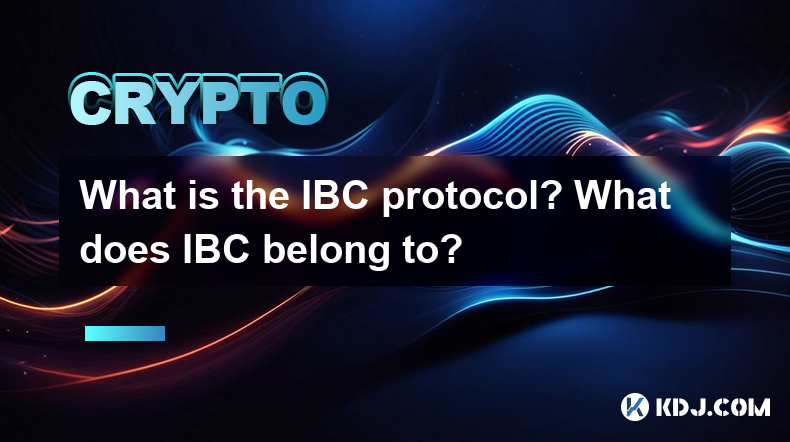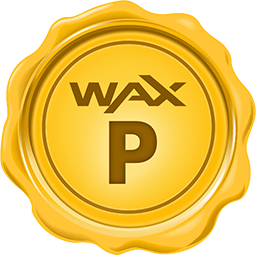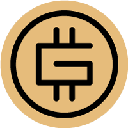-
 Bitcoin
Bitcoin $85,236.8618
0.90% -
 Ethereum
Ethereum $1,615.9773
1.41% -
 Tether USDt
Tether USDt $0.9996
-0.02% -
 XRP
XRP $2.0883
0.66% -
 BNB
BNB $591.2394
-0.31% -
 Solana
Solana $138.7789
3.57% -
 USDC
USDC $0.9997
-0.02% -
 Dogecoin
Dogecoin $0.1571
-0.57% -
 TRON
TRON $0.2426
0.82% -
 Cardano
Cardano $0.6304
0.44% -
 UNUS SED LEO
UNUS SED LEO $9.3083
0.85% -
 Chainlink
Chainlink $12.9679
2.88% -
 Avalanche
Avalanche $20.2445
5.87% -
 Stellar
Stellar $0.2481
3.09% -
 Toncoin
Toncoin $2.9678
-0.99% -
 Shiba Inu
Shiba Inu $0.0...01230
0.25% -
 Hedera
Hedera $0.1667
0.48% -
 Sui
Sui $2.1626
1.33% -
 Bitcoin Cash
Bitcoin Cash $334.6897
-2.24% -
 Hyperliquid
Hyperliquid $18.0279
6.84% -
 Polkadot
Polkadot $3.8084
3.15% -
 Litecoin
Litecoin $76.0021
-0.32% -
 Bitget Token
Bitget Token $4.5255
2.93% -
 Dai
Dai $0.9999
-0.01% -
 Ethena USDe
Ethena USDe $0.9992
-0.02% -
 Pi
Pi $0.6488
4.29% -
 Monero
Monero $211.1432
-2.44% -
 Uniswap
Uniswap $5.3268
2.64% -
 Pepe
Pepe $0.0...07424
2.66% -
 OKB
OKB $50.9311
0.82%
What is the IBC protocol? What does IBC belong to?
IBC (Inter-Blockchain Communication) is a revolutionary protocol that enables frictionless data exchange and interoperability between multiple blockchain networks within the Cosmos ecosystem.
Feb 09, 2025 at 04:07 am

Key Points:
- IBC: Definition, Functionality, and Benefits
- IBC's Role in Interoperability: Connecting Blockchain Networks
- Mechanisms and Architecture of the IBC Protocol
- IBC Token Transfers and Standards
- IBC Security Considerations
- IBC's Impact and Use Cases
- FAQs on IBC
What is the IBC Protocol?
Inter-Blockchain Communication (IBC) is a revolutionary protocol that enables seamless communication and data exchange between different blockchain networks. It acts as a bridge, connecting previously isolated blockchains and allowing them to interact in a unified ecosystem.
What does IBC Belong to?
IBC is part of the Cosmos ecosystem, a collection of interconnected blockchain networks built on the Tendermint consensus engine. IBC's core goal is to facilitate interoperability within the Cosmos ecosystem, allowing applications and services built on different Cosmos-based blockchains to communicate and interact seamlessly.
How does IBC work?
The IBC protocol operates using a set of mechanisms and technologies to establish secure and reliable communication channels between blockchains. At its core, IBC relies on:
- IBC Relayer: Specialized software that connects to multiple blockchains, facilitating message routing and data exchange.
- Chain IDs: Unique identifiers assigned to each blockchain participating in the IBC network.
- Channels: Secure bidirectional connections established between two chains for specific use cases (e.g., token transfers, data transmission).
- Packets: Data containers that encapsulate information to be transferred across chains through established channels.
Token Transfers and Standards with IBC
IBC plays a crucial role in facilitating token transfers between different blockchains. It enables the seamless exchange of assets without the need for intermediaries or complex cross-chain transactions. IBC leverages specific token standards, such as:
- Interchain Accounts (ICA): Enables accounts on one blockchain to control or interact with assets and services on another blockchain.
- Interchain Standards (ICS): A set of technical specifications that define the communication protocols and data formats used for token transfers.
IBC Security Considerations
The security of IBC-based interoperability is paramount. The protocol employs robust mechanisms to ensure the integrity and confidentiality of data transferred across blockchains:
- Secure Channels: IBC channels are established using secure cryptographic algorithms, ensuring the privacy and integrity of data in transit.
- Chain Verification: Each participating blockchain verifies the authenticity and validity of data received from other chains before executing transactions.
- Light Clients: Lightweight versions of blockchains that can be used to validate the state of a chain and participate in IBC-based communication without requiring full node synchronization.
IBC's Impact and Use Cases
The IBC protocol has had a profound impact on the blockchain landscape, unlocking new possibilities for interoperability:
- Cross-Chain Applications: IBC enables the development of cross-chain applications that leverage multiple blockchains for different functionalities, such as cross-chain decentralized finance (DeFi) platforms.
- Cross-Chain Data Exchange: IBC facilitates the secure and reliable exchange of data between different chains, supporting applications that require access to data from multiple sources.
- Interchain Gaming: IBC enables the creation of blockchain-based games that seamlessly integrate assets and mechanics from different games, creating richer gaming experiences.
FAQs on IBC
- What are the benefits of using IBC?
IBC offers interoperability, asset transfer capabilities, and cross-chain data exchange, simplifying blockchain development and unlocking new application possibilities. - How complex is it to implement IBC?
The implementation of IBC can be complex, requiring specialized technical expertise and a deep understanding of the Cosmos ecosystem. - What blockchains currently support IBC?
IBC is primarily supported by Cosmos-based blockchains, including Cosmos Hub, Osmosis, and Akash Network. - What are the future plans for IBC?
IBC is continuously being developed with plans to expand its capabilities, including support for new features, optimized security, and increased transaction throughput.
Disclaimer:info@kdj.com
The information provided is not trading advice. kdj.com does not assume any responsibility for any investments made based on the information provided in this article. Cryptocurrencies are highly volatile and it is highly recommended that you invest with caution after thorough research!
If you believe that the content used on this website infringes your copyright, please contact us immediately (info@kdj.com) and we will delete it promptly.
- 2000 €1 coin celebrating 80 years of Finnish independence is among the most coveted on the collectors' market
- 2025-04-20 04:35:12
- Bitcoin & Ethereum ETFs Continue To Stumble!
- 2025-04-20 04:35:12
- The future growth prospects of Holo (HOT) coin
- 2025-04-20 04:30:13
- Canary Capital Files a Form S-1 Registration with the SEC to Launch a Tron (TRX) Cryptocurrency Spot ETF
- 2025-04-20 04:30:13
- PancakeSwap (CAKE) price prediction 2025, 2030: Will the cryptocurrency token price increase?
- 2025-04-20 04:25:12
- Pi Network Reveals Detailed Roadmap for Mainnet Migration and Token Distribution
- 2025-04-20 04:25:12
Related knowledge

What is Ethereum’s Slashing mechanism and how to punish malicious behavior?
Feb 20,2025 at 03:08am
Key PointsOverview of slashingDifferent types of slashing in EthereumIncentives and consequences of slashingIdentifying and reporting slashed validatorsOngoing discussions and potential improvementsEthereum's Slashing Mechanism: Punishing Malicious BehaviorEthereum's slashing mechanism is an essential tool for ensuring network security and punishing mal...

What is the verifier node of Ethereum and how to become a verifier?
Feb 19,2025 at 06:00pm
The Verifier Node of Ethereum: A Comprehensive GuideKey Points:What is a Verifier Node?How to Become a Verifier NodeResponsibilities and Rewards of a Verifier NodeMinimum Requirements for Becoming a Verifier NodePotential Difficulties in Running a Verifier Node1. What is a Verifier Node?A Verifier Node is an independent entity on the Ethereum network th...

What is Ethereum’s staking, and how to participate and earn money?
Feb 19,2025 at 04:37pm
Key Points:Understanding Ethereum's Staking MechanismSteps to Participate in StakingBenefits and Rewards of StakingSecurity and Risk ConsiderationsTechnical Requirements and Hardware OptionsPotential Challenges and Troubleshooting TipsFAQs on Ethereum StakingWhat is Ethereum's Staking?Proof-of-Stake (PoS) is a consensus mechanism used in blockchain netw...

What is Ethereum’s DAO (Decentralized Autonomous Organization) and how does it work?
Feb 20,2025 at 03:12am
Key PointsDefinition and Structure of a DAOGovernance and Decision-Making in DAOsBenefits and Use Cases of DAOsChallenges and Limitations of DAOsWhat is Ethereum's DAO (Decentralized Autonomous Organization) and How Does It Work?Definition and Structure of a DAOA Decentralized Autonomous Organization (DAO) is an innovative governance and management fram...

What is Ethereum's multi-signature wallet and how to improve security?
Feb 20,2025 at 02:18pm
Key Points:Understanding the Concept of a Multi-Signature WalletBenefits and Drawbacks of Multisig WalletsRequirements for Setting Up a Multisig WalletStep-by-Step Guide to Generating a Multisig WalletImplementing Strategies for Enhanced Security1. Understanding the Concept of a Multi-Signature WalletA multi-signature (multisig) wallet in the Ethereum e...

What is Ethereum's oracle and how to provide data for smart contracts?
Feb 21,2025 at 01:30am
Key Points:Understanding the concept of oracles in EthereumExploring different types of oraclesDetailed guide on how to provide data for smart contractsAddressing potential challenges and considerationsWhat is Ethereum's Oracle?Oracles are crucial components in the Ethereum ecosystem, enabling smart contracts to access real-world data and off-chain even...

What is Ethereum’s Slashing mechanism and how to punish malicious behavior?
Feb 20,2025 at 03:08am
Key PointsOverview of slashingDifferent types of slashing in EthereumIncentives and consequences of slashingIdentifying and reporting slashed validatorsOngoing discussions and potential improvementsEthereum's Slashing Mechanism: Punishing Malicious BehaviorEthereum's slashing mechanism is an essential tool for ensuring network security and punishing mal...

What is the verifier node of Ethereum and how to become a verifier?
Feb 19,2025 at 06:00pm
The Verifier Node of Ethereum: A Comprehensive GuideKey Points:What is a Verifier Node?How to Become a Verifier NodeResponsibilities and Rewards of a Verifier NodeMinimum Requirements for Becoming a Verifier NodePotential Difficulties in Running a Verifier Node1. What is a Verifier Node?A Verifier Node is an independent entity on the Ethereum network th...

What is Ethereum’s staking, and how to participate and earn money?
Feb 19,2025 at 04:37pm
Key Points:Understanding Ethereum's Staking MechanismSteps to Participate in StakingBenefits and Rewards of StakingSecurity and Risk ConsiderationsTechnical Requirements and Hardware OptionsPotential Challenges and Troubleshooting TipsFAQs on Ethereum StakingWhat is Ethereum's Staking?Proof-of-Stake (PoS) is a consensus mechanism used in blockchain netw...

What is Ethereum’s DAO (Decentralized Autonomous Organization) and how does it work?
Feb 20,2025 at 03:12am
Key PointsDefinition and Structure of a DAOGovernance and Decision-Making in DAOsBenefits and Use Cases of DAOsChallenges and Limitations of DAOsWhat is Ethereum's DAO (Decentralized Autonomous Organization) and How Does It Work?Definition and Structure of a DAOA Decentralized Autonomous Organization (DAO) is an innovative governance and management fram...

What is Ethereum's multi-signature wallet and how to improve security?
Feb 20,2025 at 02:18pm
Key Points:Understanding the Concept of a Multi-Signature WalletBenefits and Drawbacks of Multisig WalletsRequirements for Setting Up a Multisig WalletStep-by-Step Guide to Generating a Multisig WalletImplementing Strategies for Enhanced Security1. Understanding the Concept of a Multi-Signature WalletA multi-signature (multisig) wallet in the Ethereum e...

What is Ethereum's oracle and how to provide data for smart contracts?
Feb 21,2025 at 01:30am
Key Points:Understanding the concept of oracles in EthereumExploring different types of oraclesDetailed guide on how to provide data for smart contractsAddressing potential challenges and considerationsWhat is Ethereum's Oracle?Oracles are crucial components in the Ethereum ecosystem, enabling smart contracts to access real-world data and off-chain even...
See all articles























































































